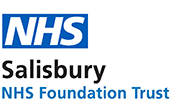

Most patients will go to the doctor once they have difficulty swallowing food/drink. It is important to go to the doctor as soon as symptoms begin, to increase the chances of early diagnosis which may improve outcomes of treatment. If the GP has any concerns, then you will be referred to a specialist at the hospital.
For more information on all the below tests, please visit: Tests for oesophageal cancer | Cancer Research UK.
Tests to determine if you have oesophageal cancer may include:
Our staff at Salisbury District Hospital have long been well regarded for the quality of care and treatment they provide for our patients and for their innovation, commitment and professionalism. This has been recognised in a wide range of achievements and it is reflected in our award of NHS Foundation Trust status. This is afforded to hospitals that provide the highest standards of care.
